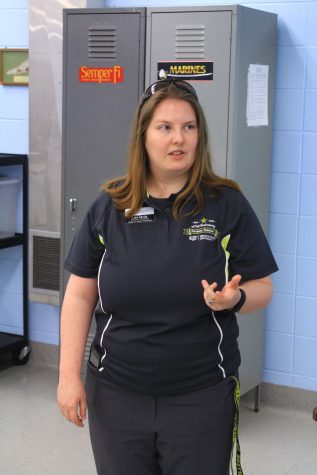Reflections on an election
In what seems to have been only a short time, months have absolutely flown by following the 2014 General Elections here in the United States.
However, with the amount of legislation that has happened in the past three months, it has felt like years.
Recently, the media has been a buzz with budget cuts, minority protection battles and discussion over whether or not professors should be allowed to use their university titles in newspaper columns.
Unfortunately, I wish that I could say these conversations surprise me.
Looking back, the 2014 campaign season was one that would mark history books. A governor’s race marked with three strong candidates, a secretary of state race involving two candidates that differed drastically and a senatorial race between a Republican and Independent candidate, bucking the traditional Republican-Democrat battle.
The results of the election were predictable: the voters in the great state of Kansas re-elected nearly all of the politicians that, according to voters, seemed to cause nothing but controversy in the time leading up to the election.
That leaves one question: if the present administration did not adequately represent the needs of Kansas, why were they re-elected?
Today, as individuals across the state sign online petitions asking for the recall of Kansas Gov. Sam Brownback in light of recent legislation introduced since re-taking office, I can’t help but wonder where some of these individuals were in the days leading up to election day.
Although you may feel that your vote does not count, trust me, it does — in the 1974 general elections, the winning governor candidate won by 3,000 votes. And, at the time, Kansas had roughly 2.2 million residents, turning those 3,000 votes into a real-life example of “your vote counts.”
After looking at data from the office of Kansas Secretary of State Kris Kobach pertaining to the 2014 general elections, the same trends emerge.
In Kansas, a total of 1,744,866 individuals were registered to vote at the time of the election. About 240,000 of registered voters voted early, and a total of 887,023 votes were cast in Kansas.
In the most important election since 1974, only 50.8 percent of voters in Kansas cast their vote.
And, the kicker: between the top two 2014 governor candidates, Paul Davis and Sam Brownback, Davis lost by roughly 32,000 votes, less than 4 percent of the total votes cast in the election between the candidates.
It does not matter if you are satisfied with the results of the elections or not — only 50.8 percent of registered voters turned out to the polls.
If you were part of those who turned out to vote, be sure to encourage those around you to vote.
However, if you were part of the 49.2 percent of registered Kansas voters that did not vote in 2014, but are unhappy with the way Kansas is going, I urge you to vote in the next election.








